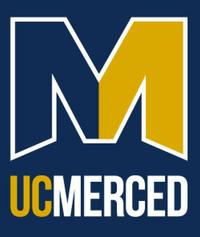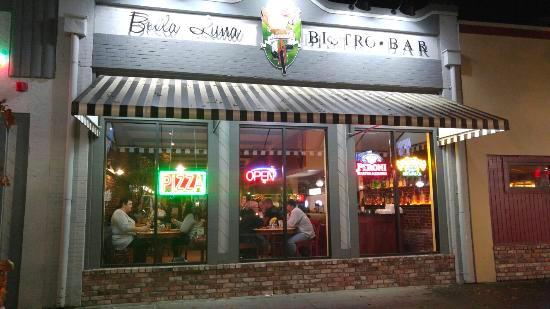TRAUMA-INFORMED TEACHING SYMPOSIUM

FRIDAY, APRIL 14, 2023
University of California, Merced 5200 Lake Rd, Merced, CA 95343

INTERDISCIPLINARY
Breakfast: 8:30-9:00 am
Conference Center Room 105
Keynote and Focused Workshop

Featuring Dr. Mara Lee Grayson


Conference Center Room105
9:00-10:00 am
All Sessions will be located on the 2nd floor of the UC Merced Conference Center.
“Adverse Childhood Experiences: A Timeline and A Telling”
Speaker: Christa Fraser
Using maps, a timeline, and visualized data, this multimedia narrative presentation will provide a case study of the development of a high Adverse Childhood Experiences (ACE) score and track the accumulating and correlated lifelong mental and physical health risks. The presentation will also address the role narrative ignorance can play in pedagogical and assessment missteps that occur when teaching students with high ACE scores while also offering a rare look into the role of non-cathartic personal narrative strategies in surviving a high ACE score and generating ongoing academic resilience.
“Creating, holding, and sharing space in the University Classroom: What Trauma-Informed University Teachers Can Learn from Trauma-Informed Yoga”

Speaker: Nicole Tunipseed
This workshop will open with a gentle breathing and movement practice that models some of the key tenets of trauma-informed yoga. Note: this is NOT encouragement for those not trained in the teaching of yoga to bring yogic practices into their classrooms. Rather, we’ll unpack the experience together as a way into considering practices that are appropriately fitted to our classrooms. Following our embodied practice, the facilitator (a certified yoga instructor and assistant professor of writing) will present workshop attendees with an outline of the cognitive-relational framework for trauma-informed yoga developed by Yogis In Service in partnership with the Africa Yoga Project (AYP) and University at Buffalo, State University of New York (YIS-TIY) (Cooke-Cottone et al., 2017). In presenting the YIS-TIY framework, the facilitator will illuminate some of the specific practices she employs in her writing classes that align with the framework but center the particular needs and realities of her writing students. Then the group will collaborate to compile a list of practices they already employ or are interested in taking up that adapt the framework to our own classes.
“Creating Space for Learning Through Compassionate Practices”

Speakers: Alesya Petty, Anne F. Walker, Kirsten Schwartz
In this 90 minute presentation/workshop Alesya Petty, Kirsten Schwartz, and Anne F. Walker will consider Success and Mindfulness in Writing, Leadership and Self Deception, and Memoir and Counter Story-Telling. The three individual sections will open to group discussion in the final half hour. The sessions move from internal, to family, and to community.
10:15-11:45
Concurrent Session A
“Speed Diversity Dialogue: A Diversity and Multicultural Excellence Workshop”
Daniel Mello and the Speed Diversity Dialogue (SDD) Team
Educators are increasingly seeking novel, evidence-based methods that cultivate inclusive, trauma-informed classroom atmospheres which spark collaborative engagement amongst their students. Moreover, such methods that dismantle outdated and oppressive professorial hierarchy may have particular benefits to historically-underrepresented groups, such as Latino/a/x students who are the first in their families to attend higher education. This workshop consists of two major components: Interactive and Didactic. SDD™ starts with the Big 8+ of Diversity as a framework with which participants can recognize social identities, construct the intersectionality of identities, and realize ISMs (prejudice and discrimination) experienced by each group: (1) Race/ethnicity, (2) culture, (3) sex/gender, (4) sexual orientation, (5) disability, (6) age, (7) religion, and (8) socioeconomic status; the ‘+’ denotes other important categories, such as appearance, or political affiliation. Afterward, we facilitate face-to-face dialogues for the Interactive component in a structured manner by first establishing a series of common Ground Rules to which all participants (including the Instructor) must adhere for safe and respectful interactions (e.g., using respectful and inclusive language), then by allowing participants to dialogue using specific prompts that can help highlight and reduce implicit bias.
“Context Matters: A Trauma-Informed
and Relational Consideration of Best Practices and Disconnection”
Speakers: Linda Land-Closson (Assistant Professor of Peace and Justice Studies at Regis University), Brianna Flores-Chavez, Hailey Kreiling, Nicole Santopadre (Peace and Justice Studies students at Regis University), and Olivia Myers-Elkins (student at Regis University)
By definition, trauma functions to dehumanize, and traumatic experiences or traumatizing environments threaten one’s sense of self. Part of the “antidote,” then, is to humanize—to see, witness, and accompany—one who has experienced or is experiencing trauma. Paradoxically, however, even though trauma often occurs through relationship, relationships are also the avenues through which we humanize one another. During this workshop, we present about, and facilitate conversations around, two implications about relationships in the context of trauma-informed pedagogies: 1) while relationships must be central to trauma-informed pedagogies, they are sometimes hampered by best practices, and 2) trauma-informed pedagogies ought to account for what Maureen Walkeri describes as the benefits of disconnection within relationships, especially in contexts such as minoritized-serving institutions with majority White faculty. In our workshop we offer our stories of trauma-informed pedagogies from both the professor and student perspective. We share experiences of what has worked and has not worked for us as a White professor who decolonized a course (with mixed results), and as White and BIPOC students who bring individual and collective traumas to their education settings.
Concurrent Session B 1:00-2:30
“Decolonizing Trauma-Informed Pedagogy”
Speaker: Zachary McNiece
Trauma lives within the body and mind of the survivor, who is tasked with managing the physical, psychological, and emotional aftermath and adapting to a world in which they may be retraumatized. The role of the systems that positioned that person to survive the trauma (and the resources available for healing) tend to be neglected. This lens of trauma is rooted in white western epistemologies, including ideas about the basic functional social unit, responsibility for the effects of harm, and sources of healing. More recently, scholars have shifted conversations about trauma to consider systemic factors through the development of new conceptualizations, such as intergenerational trauma and race-based trauma. However, because these constructs are largely abstract and theoretical in nature, their practical application has been somewhat limited to date. This experiential workshop will explore how educators and practitioners can decolonize their traumainformed pedagogy by shifting their lens to be inclusive of ways of knowing and being that are often neglected within educational spaces. As a part of this work, participants will consider models of trauma rooted in non-western epistemologies and ontologies. Participants will discuss the multidimensional effects of trauma and identify specific pedagogical methods for creating community that is rooted in hooks (1994) engaged pedagogy.
Break
2:30-3:00
Concurrent Session C 3:00-
4:30
“Creating Quiet Spaces as a Form of Resistance”

Speakers: Dawn Trook and Angela Winek
Using tenets from Tricia Hersey’s Rest is Resistance and Resmaa Menaken’s My Grandmother’s Hands, Trook and Winek will lead workshop participants through several short classroom spaces based in an intersection of trauma-informed and anti-racist pedagogies. This workshop will focus on the use of the composition classroom as a gathering space for rest, quiet, reflection, and personal development, not only for individual and community healing, but as a form of resistance, a disruption of the systems of capitalism and white supremacy. For this workshop, we will start with a grounding practice, talk about the basis of this practice, and end with an end-of-class reflective writing. Ideally, we would also set up other quiet spaces for symposium participants to rest in throughout the day. These would offer optional activities (such as doodling or coloring materials, music or meditation recordings, and journal prompts.
Use this time to join a quiet space, to mingle with colleagues, to rest, and reflect on the day thus far.
“Improved Writing, Improved Relationships: Using Peer Response to Build Trust in the Classroom”
Workshop Facilitator: Cody Bursch
If scaffolding and facilitating instances of peer response in the writing classroom from a traumainformed perspective means the process can be aimed at building trust between peers, what are some key variables instructors ought to consider about how their students form relationships in the first place? What are some assumptions or commonplaces that instructors already have about peer response that we can draw from or deconstruct in order to facilitate peer response in a way that promotes a trusting culture in the classroom? In this workshop, the facilitator will lead participants through an interactive and reflective process that seeks to operate as a space for instructors to ask these questions and build interest in relevant research. The goal is to surface what we value about peer response as a pedagogical tool and what we know about our students’ practices. By the end of the process, we’ll have synthesized these components in order to support future design of peer response activities that are culturally responsive and that center trust building as a legitimate outcome.
“Intellectual Activism and an Indigenous-Feminist/ Trauma-Informed Approach” Violet Barton and Danielle Bermudez
Titakatiliat Tik Taneshnaj (Dar a Luz en lo Oscuro): An Indigenous Feminist Reading of and Trauma-informed Approach to Fiat Lux
Speaker: Violet Barton
Eurocentric religious conceptions of the world found their way to the University of California in 1884, when the Orders of the Board of Regents stated that Fiat Lux should be its official motto of this landgrant institution. Here, the university uses this motto as a signifier for wisdom and knowledge, which many critical scholars would argue functions to illuminate the path for the ongoing civilizing project. The colonial foundations of the University of California during one of the darkest periods in the history of this settler’s project, are hardly a subject of debate. Rather, I center the teachings of Chicana scholar Gloria Anzaldúa and ancient Nahua-Pipil epistemologies of titakatiliat tik taneshnaj or dando a luz en lo oscuro (giving birth in the dark), as a radical act of decolonial love that shows us that, it is possible to heal from the foundation of colonial violences of the university that forcefully clashes on womxn of color bodies to attempt to kill our academic careers, our hopes and dreams, our aspirations, our scholarship, our livelihood and that of our children. I reflect on the lived experiences of students in the University of California as my qualitative data, to speak of the exclusions, disappearances, forced removals, and the killings of dreams that are still taking place in these grounds, as well as, the courageous fugitivity of barefoot womxn of color scholars whose indefatigable fight for their education, their lives, and their futures shine a light on what it means to birth our truths and produce knowledge, despite the intersectional pains of these experiences, relying on these ancient praxes of resistance, safety and survivance, as a trauma-informed approach to emancipatory higher education, and of those deemed not to belong in the university.
“Visions of Emancipatory Education: Ethical Imperatives and Intellectual Activism at the Nexus of Living-Working-Being in the 21st Century Neoliberal Research University”

Speaker: Danielle Bermudez
In 1998, scholar Patricia Hill Collins published her third book Fighting Words: Black Women and the Search for Justice. Inspired by the works of fellow Black Feminist knowledge producers, such as Angela Davis, Alice Walker, Audre Lorde, Ida B. Wells-Barnett, Pauli Murray, Toni Morrison, Kimberlé Crenshaw, and several Others; Collins articulated an “ethics of care” founded and centered on the experiences of Black womxn, in and outside of the academy. In one of her most cited works, Black Feminist Thought: Knowledge, Consciousness and the Politics of Empowerment (1990, 2000), Collins emphasized these “ethics of care” through various frameworks, including Critical Race Theory (CRT), intersectionality, and Black Feminism. Collins’ work built upon the Combahee River Collective Statement (1977), and also contributed to long-lasting solidarities among networks of Womxn of Color Feminists, including Chicanx scholars like Gloria Anzaldúa and Cherie Moraga, who also wrote about their experiences in and outside of the ivory tower. Embedded in these important intellectual traditions are sacred and intimate knowledges that currently provide us with an imperative to continue to speak our truths and create spaces of liberation despite barrier-thinking and institutional obstacles. As such, this presentation critically interrogates the language of “DEI” and “HSI”, and its meanings for students, which often remain stuck in constraining frameworks of appropriation, multiculturalism, and neoliberalism.
Directions to UC Merced
UC Merced, 5200 N. Lake Road, is about eight miles northeast of the city of Merced’s downtown area. Driving directions to the campus from the region’s major airports (San Francisco, Sacramento, San Jose and Fresno) are available online. Driving directions for travelers coming to campus by way of Highway 99 — the nearby state route that stretches nearly the entire length of California’s Central Valley — are:
DIRECTIONS FROM SOUTHBOUND HIGHWAY 99
Head southeast on CA-99 South.
Take Exit 187B toward Martin Luther King Jr. Way.
Turn left onto CA-59 North/Martin Luther King Jr. Way.
Take the third right onto West 16th Street.
Take the third left onto G Street.
Turn right onto East Bellevue Road.
Turn left at Lake Road.
Arrive at main entrance to the UC Merced campus.
DIRECTIONS FROM NORTHBOUND HIGHWAY 99
Head northwest on CA-99 North.
Take exit 187A for G Street.
Turn right onto G Street.
Turn right onto East Bellevue Road.
Turn left at Lake Road.
Arrive at main entrance to the UC Merced campus.
A campus map, including buildings, landmarks, roads and other points of interest, is available online and can be downloaded and printed.

1. 2. 3. 4. 5. 6. 7. 8.
1. 2. 3. 4. 5. 6.

























